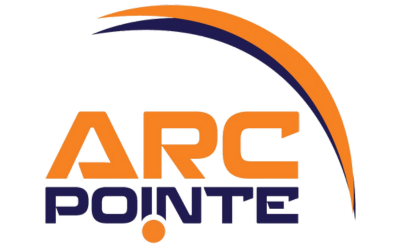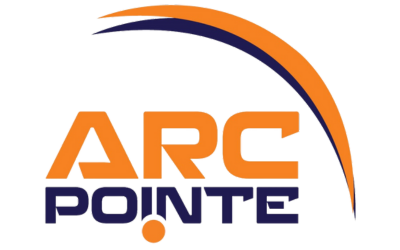
A healthcare virtual assistant helps your practice handle the nonstop flow of calls, messages, and scheduling requests so your team can stay focused on patients. When phones ring all day, your staff is juggling front desk, charting, and follow-ups at the same time, and every shift you’re forced to choose: answer one more call or see the next patient on time.
A healthcare virtual assistant gives your practice a dedicated, remote team member who handles the administrative load so you and your clinical staff can stay focused on care. With the right partner, you get consistent, HIPAA-aware support without adding more full-time headcount or office space.
This guide explains what a healthcare virtual assistant is, what they actually do day to day, and how ARC Pointe Group’s nearshore model can support your clinic, med spa, or multi-location practice.
What is a Healthcare Virtual Assistant?
A healthcare virtual assistant is a trained, remote professional who supports medical practices with day-to-day administrative and patient-facing tasks. Instead of sitting at your front desk, they work from a secure location and connect to your systems, phones, and tools just like an in-house team member.
At ARC Pointe Group, our healthcare virtual assistants specialize in:
Managing the phones and patient messages
Scheduling and rescheduling appointments
Supporting insurance and eligibility workflows
Helping your team keep charts, tasks, and reminders organized
Think of them as your medical administrative virtual assistant and medical virtual receptionist in one: they protect your time, keep your schedule full, and make sure patients are heard.
Why Healthcare Practices Need a Virtual Assistant Now
Healthcare has changed, but the front desk workload has only grown:
Patients expect fast responses across phone, text, email, and portals
Online reviews are often about “no one picked up the phone” or “they never called me back”
Staff burnout is real when the same small team is doing clinical, admin, and customer service work
A healthcare virtual assistant helps you:
Reduce abandoned calls and long hold times
Protect your in-house staff from constant interruptions
Improve patient experience without over-hiring
Extend coverage beyond 9–5 if your patient base needs it
Instead of apologizing for the phones, you can confidently say, “We’ll take care of you,” and know your operations can back that up.
What a Healthcare Virtual Assistant Can Do for Your Practice
A healthcare virtual assistant is most powerful when they are embedded into your existing workflows. Here are the core areas they can support.
1. Patient communication and front desk coverage
Answer incoming calls as your medical virtual receptionist
Triage call reasons and route to the right person or department
Return voicemails and follow up on missed calls
Respond to common questions: hours, directions, basic prep instructions
Capture detailed messages for clinicians and nurses
Result: fewer dropped calls, fewer frustrated patients, and a calmer front desk.
2. Scheduling, reminders, and follow-up
Book, reschedule, and cancel appointments according to your rules
Send reminders and confirmations through your existing tools
Manage waitlists and same-day openings
Support telehealth scheduling and links
Log follow-up tasks after visits (labs, imaging, referrals, etc.)
Result: stronger schedule utilization, fewer no-shows, and better continuity of care.
3. Insurance and administrative support
Depending on your workflow and systems, your healthcare virtual assistant can help with:
Basic insurance verification and eligibility checks
Collecting insurance information before the visit
Confirming demographic and contact details
Organizing documents and forms for billing teams
Supporting pre-visit paperwork and consents
Your billing and clinical teams stay focused on higher-level work while routine data collection and organization are handled consistently.
4. Support for telehealth and remote care
As more practices offer virtual visits and remote services, the admin work around them multiplies. A healthcare virtual assistant can:
Help patients connect to telehealth platforms
Provide simple tech guidance before the appointment
Ensure visit links and reminders go out on time
Coordinate follow-up visits, labs, or referrals after a virtual consult
This is especially valuable for busy specialists, mental health providers, and med spas offering hybrid in-person and virtual care.
Why Work With a Nearshore Healthcare Virtual Assistant Provider
You can hire a single freelancer, but many practices prefer a structured, nearshore healthcare virtual assistant service like ARC Pointe Group because it combines people, process, and supervision.
Key advantages of a nearshore model include:
Time zone alignment
Your healthcare virtual assistants work in time zones close to the U.S., making real-time collaboration easy.Bilingual talent
Many teams support both English and Spanish, which is critical for patient populations that need native-language help.Healthcare-focused training
Your assistants are trained in medical terminology, appointment types, and the realities of clinics, med spas, and specialty practices.HIPAA-aware workflows
Processes and tools are designed to support HIPAA-aligned practices, protecting patient information and minimizing risk.Scalability
Start with one healthcare virtual assistant and add more support as your practice grows or as you open new locations.
You gain the benefits of a larger, structured team without the overhead of building it all in-house.
How ARC Pointe Virtual Medical Assistants Work With Your Team
While every engagement is customized, the flow typically looks like this.
1. Discovery: understand your practice
We start by learning:
Your specialties and service lines
The volume and types of calls you receive
Your current scheduling rules and systems
Where your team feels the most pressure (phones, follow-ups, insurance, etc.)
This helps us define exactly what your healthcare virtual assistant will own and what stays with your in-house team.
2. Workflow and script design
Next, we map out:
Call flows and triage rules
Standard greetings and brand voice
Escalation rules (when to transfer, when to message, when to call back)
How to use your EHR, practice management tools, and communication platforms
The goal is simple: when patients interact with your virtual assistant, it should feel like they’re talking directly to your practice.
3. Training and shadowing
Your healthcare virtual assistant is trained on:
Your specific workflows and preferences
Your scheduling and documentation systems
Any key clinical terms or service packages unique to your practice
They may listen to a sample of recorded calls or shadow your in-house team (live or virtually) before taking calls themselves.
4. Go live with support and quality checks
Once live, we:
Monitor call quality and documentation
Review sample calls or messages with you
Adjust scripts, FAQs, and workflows based on real-world use
Add coverage or additional assistants if demand grows
You’re never left to “manage a freelancer” on your own. You get a structured healthcare virtual assistant service backed by a team that cares about your results.
Is a Healthcare Virtual Assistant Right for Your Practice?
A healthcare virtual assistant is especially powerful if you:
Lose calls when staff step away from the front desk
Have more voicemail than your team can return in a day
Struggle to keep up with scheduling and rescheduling
Want to extend hours or add new services without hiring multiple full-time staff
Are opening new locations and need consistent, centralized phone and scheduling support
Common practice types that benefit from healthcare virtual assistant services include:
Primary care and family medicine
Specialty clinics (cardiology, GI, ortho, etc.)
Behavioral health and therapy practices
Med spas and aesthetic practices
Multi-location outpatient centers and group practices
If your team is busy apologizing for delays instead of delivering a smooth experience, a healthcare virtual assistant can help reset the balance.
How to Get Started With ARC Pointe Group
If you’re ready to protect your time, reduce front desk chaos, and improve patient experience, the next step is simple:
Share your practice size, call volume, and main pain points.
We’ll recommend a healthcare virtual assistant support plan that matches your workflow and budget.
We design your call flows, scripts, and processes together.
Your assistant goes live with supervision, feedback, and ongoing optimization.
You don’t need to fix everything at once. Start by taking the heaviest task off your team’s plate—usually the phones and scheduling—and let your healthcare virtual assistant prove the value.
Frequently Asked Questions About Healthcare Virtual Assistants
What does a healthcare virtual assistant do day to day?
A healthcare virtual assistant handles administrative and patient-facing tasks such as answering calls, managing schedules, confirming appointments, logging messages for clinicians, and supporting basic insurance and paperwork workflows. They work as an extension of your in-house team, just in a remote location.
Is a healthcare virtual assistant HIPAA-compliant?
A properly managed healthcare virtual assistant service will work within HIPAA-aware processes, using secure tools and documented workflows to protect patient information. At ARC Pointe Group, we align our healthcare virtual assistant services with your existing privacy, security, and access-control policies so your team can maintain compliance.
How is a healthcare virtual assistant different from a medical virtual receptionist?
A medical virtual receptionist focuses primarily on front desk tasks: answering calls, greeting patients (virtually), and managing appointments. A healthcare virtual assistant can include those duties plus additional support around insurance tasks, follow-ups, reminders, telehealth coordination, and other admin work your practice needs.
How long does it take to onboard a healthcare virtual assistant?
Onboarding time depends on the complexity of your workflows, but many practices can go live within a few weeks. The most important steps are clarifying scripts, escalation rules, and access to systems so your assistant can work confidently from day one.
Which types of practices get the most value from a healthcare virtual assistant?
Practices that experience high call volumes, frequent schedule changes, or rapid growth tend to see the most impact. That includes busy primary care offices, specialists, med spas, behavioral health practices, and multi-location clinics that need consistent patient communication and scheduling without burning out their staff.





